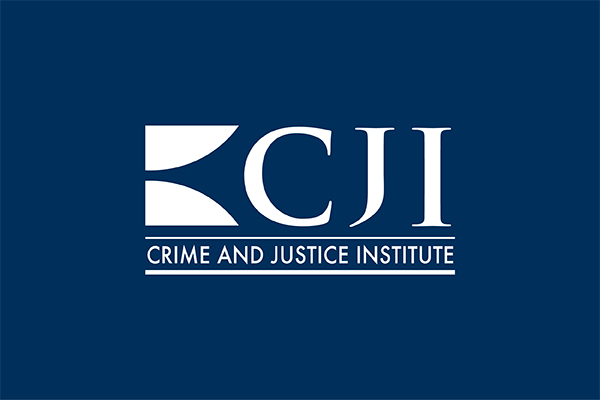
As a new year begins, CJI welcomes new opportunities to drive bold and transformative improvements to justice systems throughout the country.
Our collaboration with partners at the national, state, and local level in 2023 will be broad and deep: spanning every stage of the justice process, from police contact to community supervision, and employing comprehensive, thorough analysis and problem-solving.
At the heart of CJI’s efforts is our decades-long commitment to advancing nonpartisan solutions supported by data and research.
Looking Forward
In 2023, CJI will continue working at the frontlines of the adult and youth justice systems, helping partners implement proven practices along with fresh and innovative models. Projects include:
- Piloting a first-of-its-kind program addressing missed court appearances in Tarrant County, TX, with the goals of increasing fairness, improving outcomes, and reducing racial disparities
- Spearheading a multi-year project in four states to reduce and improve the use of restrictive housing in prisons, while protecting the safety of those who live and work in state correctional facilities
- Helping local jurisdictions reduce youth recidivism and confinement for violations of community supervision, improve interactions between youth and supervision staff, and demonstrate effective models to inform other jurisdictions across the nation
- Working with stakeholders in up to four states to implement recommendations resulting from CJI’s assessment of supervision practices
Progress Made
Our work in 2023 will build on our partners’ accomplishments in 2022. Last year, CJI assisted jurisdictions from coast to coast in making progress toward their justice system goals.
We drove evidence-based policy change
- Served as a nonpartisan justice system expert to the New Mexico task force exploring unification of the state’s jail and prison systems
- Supported Nebraska state leaders in analyzing corrections data and developing recommendations for policy and practice through the Justice Reinvestment Initiative (JRI), resulting in significant progress towards urgently needed justice system reforms
- Partnered with the Utah Commission on Criminal & Juvenile Justice to investigate the impact of the state’s 2015 JRI process
- In collaboration with The Pew Charitable Trusts (Pew), continued work with state leaders in Pennsylvania to advance recommendations from the Pennsylvania Juvenile Justice Task Force through the legislature
We served as a trusted resource for unbiased analysis and evaluation
- Completed a multi-year, comprehensive assessment of supervision practices and the causes of revocations to prison in four states, culminating in the release of six publications
- In partnership with the Las Vegas Metropolitan Police Department, explored the experiences of women in policing through interviews and surveys; complementing this work, CJI serves as the Technical Assistance Center for the 30×30 Initiative, which aims to advance women in policing
- Released an analysis of the public safety impacts of Colorado’s efforts to reduce community supervision caseloads during the COVID-19 pandemic
- In partnership with the Tennessee Corrections Institute and Austin Peay State University, assisted with a qualitative study on jail staff retention and officer wellness
- Analyzed data on failures to appear in three counties in North Carolina and worked with stakeholders to develop tailored policy solutions, in partnership with Pew and the University of North Carolina School of Government Criminal Justice Innovation Lab
- Produced a report on the impact of the COVID-19 pandemic on Nevada’s justice system along with twelve policy recommendations
We promoted effective practices at the intersection of the justice system and behavioral health
- Supported the development of a Virtual Crisis Care pilot in Nevada, modeled after South Dakota’s program, to divert people with mental health needs in rural areas from the justice system
- Trained Nevada probation and parole officers to engage more effectively with people who have experienced trauma and those with behavioral health disorders
- Developed a peer support curriculum to support correctional officer wellness and mental health in Tennessee jails
- Delivered Managing Restrictive Housing Populations training to six jail systems and nine state departments of corrections, with a focus on diverting people with serious mental illness from restrictive housing
We supported the success of directly impacted people
- Piloted a behavior change training with the Louisiana Department of Public Safety & Corrections for incarcerated people who are peer leaders to effectively facilitate groups with other incarcerated people
- For the fourteenth year, compiled and distributed a directory of reentry services for people in greater Boston who are previously incarcerated and those who serve them, with plans to expand to a searchable statewide web-based directory
These accomplishments would not be possible without the dedicated work of our funders:
- Administrative Office of the Courts, Kentucky Court of Justice
- Alaska Department of Corrections
- Arnold Ventures
- Blue Meridian Partners
- The Boston Foundation
- City of Aurora, Colorado
- City of Cambridge, Massachusetts
- City of Duluth, Minnesota
- City of Milwaukee, Wisconsin
- Council on Criminal Justice
- The Department of Justice Office of Justice Programs, Bureau of Justice Assistance
- The Department of Justice, Civil Rights Division
- The Department of Justice, National Institute of Corrections
- The Department of Justice Office of Justice Programs, Office of Juvenile Justice and Delinquency Prevention
- Gardiner Howland Shaw Foundation
- Kansas Department of Corrections
- Louisiana Department of Public Safety and Corrections
- Lucas County, Ohio
- Macomb County, Michigan
- Massachusetts Executive Office of Public Safety and Security
- New York University
- Oakland County, Michigan
- Oklahoma County Criminal Justice Advisory Council
- The Pew Charitable Trusts
- Philadelphia Police Foundation
- State of Tennessee
- Utah Department of Corrections